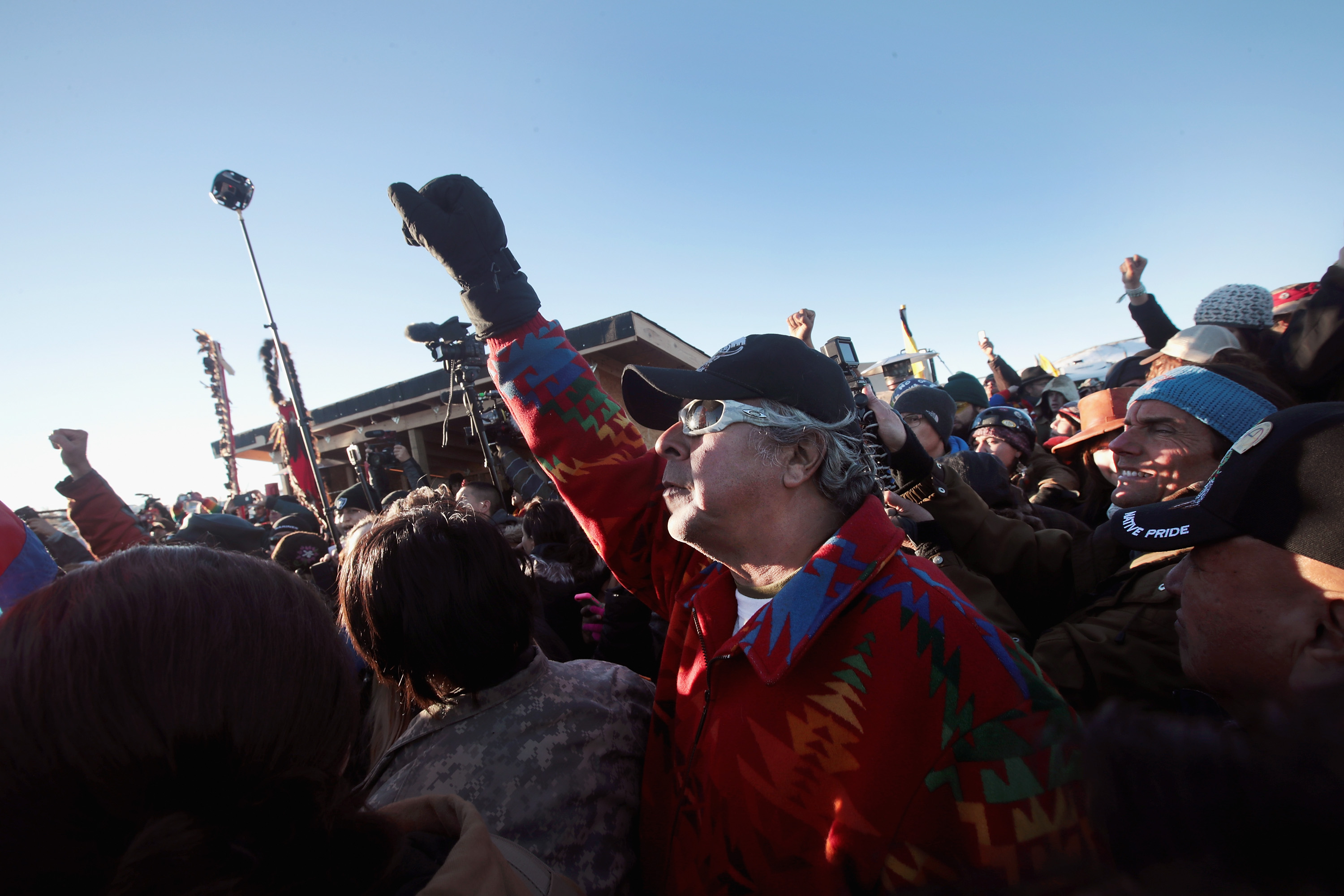A bill introduced in the North Dakota legislature in early January would protect negligent drivers from legal consequences if they were to hit protesters with their cars if those protesters were blocking a road or highway.
House Bill 1203, which began receiving committee hearings last week, was written as a direct response to protests against the Dakota Access pipeline in Cannon Ball, North Dakota, Rep. Keith Kempenich, the bill’s lead sponsor, told The Star Tribune.
“If you stay off the roadway, this would never be an issue,” Kempenich said. “Those motorists are going about the lawful, legal exercise of their right to drive down the road. … Those people didn’t ask to be in this.”
Kempenich has said the point of the bill is about shifting responsibility to people who have “made a conscious decision to put themselves in harm’s way.” He said however that the legislation would not protect those who intentionally hit pedestrians on the roadway, and it would not protect drivers who hit jaywalkers or children who wander off the sidewalk and onto the road.
The bill's text highlights no such exemptions, according to James Grijalva, a professor at the University of North Dakota School of Law and Director of the Northern Plains Indian Law Center.
"The language of this bill doesn't specify that it relates to protesters. It could, in theory, even apply to someone whose car breaks down on the side of the road, or a child who chases a ball onto the street," Grijalva told Business Insider.
"What it's basically saying is that if you're a careless driver who causes death or injury to someone who happens to be - intentionally or unintentionally - in the roadway, then you have not committed a crime and you are not civilly liable to the family of the person you hit," he said.
The bill's text, in effect, creates a specific exception to North Dakota's code of criminal law relating to negligent homicide, which is classified as a felony in the state.
"There's an important distinction in criminal law between intentional and unintentional crimes," Grijalva said. "If you didn't intend to kill someone but were driving so carelessly that it resulted in someone's injury or death, that could be considered gross manslaughter under the criminal code. But this bill makes that something you're not criminally liable for."

The bill has sparked outrage from Dakota Access protesters.
Wes Clark, Jr., a military veteran and environmental activist who spearheaded the deployment of at least 2,000 veterans to Standing Rock at the height of the protests last year, likened the bill to "legalizing murder."
Clark said he assumed "any lawyer with a conscience" would challenge it in court if the bill were signed into law.
"This bill is an endorsement of violence against peaceful protesters. It is totally against the spirit of this country, and against everything that is good and just," wrote the organizers of a petition on Care2 launched in response to the bill.
Tara Houska, an activist, similarly expressed shock at the bill, telling NBC News that it "allows for people to literally be killed for exercising their right to protest in a public space."
"These [bills] are meant to criminalize the protests with no real concern for constitutional law," Houska added.
Whether House Bill 1203 will become law remains to be seen.
"This bill does not seem like a reasonable response to the Dakota Access protests," Grijalva said. "I would hope that it's not signed into law, because it broadly sanctions careless driving that results in injury and death to pedestrians who, by definition, are unprotected."
Clark and other activists are gearing up for a fight on the heels of executive orders signed by President Donald Trump on Tuesday authorizing revival of the Dakota Access and Keystone XL pipelines.
"Climate change is happening," Clark told Business Insider on Tuesday, adding that Trump wants to harm "the entire human race so a few billionaires can have a few more dollars."
Activists have promised grassroots opposition to Trump's executive actions.
"We intend to stay on those campuses and continue to work with community groups to make sure that the American people are aware of what's happening," billionaire environmental activist and top Democratic donor Tom Steyer told Business Insider. He also promised to continue to financially support the NextGen millennial groups working to curb the effects of climate change.
House Bill 1203 isn't the only bill introduced in the North Dakota legislature in response to the pipeline protests. One proposed bill would make it a crime for adults to wear masks and another would allow the state to sue the federal government over policing costs related to pipeline protests.

